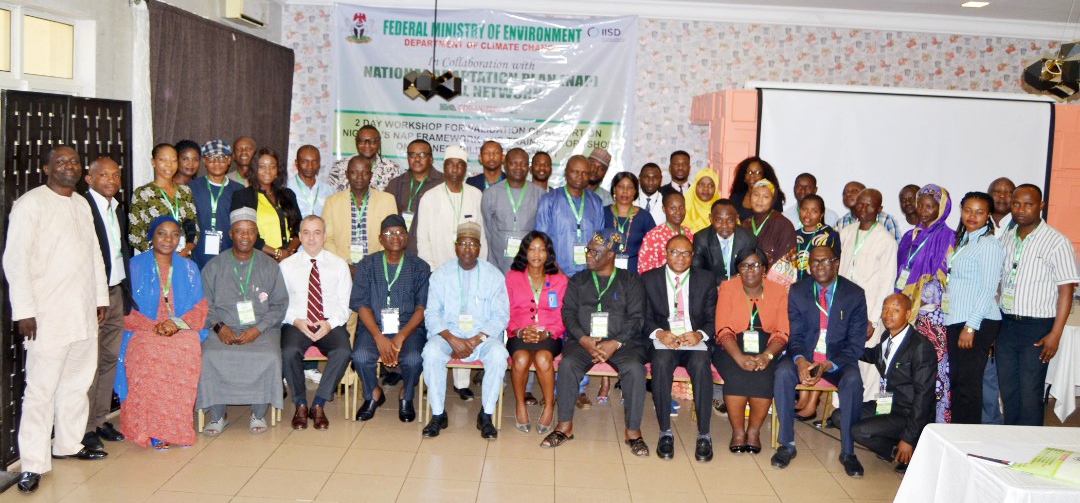The Nigerian National Adaptation Plan (NAP) framework was validated by stakeholders from both the public and private sectors during a workshop held in Abuja on November 5. The framework aims to guide the government in developing and implementing policies, plans and legislation that will assist Nigeria to address its medium- and long-term adaptation needs.

The workshop was opened with the words of the Permanent Secretary of Nigeria’s Ministry of Environment, Ibukun Odusote. According to the website EnviroNews Nigeria, Odusote noted that the inputs gathered during the validation workshop will help the government build resilient communities that can adapt appropriately to the impacts of climate change.
“The first step in achieving this is the development of this framework for which we are gathered here to validate,” said Odusote. “This framework will help deliver on the obligations of the Paris Agreement and the Nationally Determined Contribution (NDC) component as it relates to adaptation.”
In addition, Odusote pointed out that adapting to the impacts of climate change in the future will be difficult and costly unless drastic and decisive actions are taken now. The Permanent Secretary remarked that climate change has become a critical issue of our time, with unprecedented impacts in scope and scale.
Nigeria is at the beginning of its NAP process, which will build on the country’s National Adaptation Strategy and Plan of Action on Climate Change (NASPA-CCN), launched in 2011. According to Ibukun Odusote, the NASPA-CCN will be reviewed in line with recent developments and international best practices.
Technical assistance for the Nigerian government to develop the NAP Framework and to organize the workshop was delivered via the NAP Global Network’s Country Support Hub.